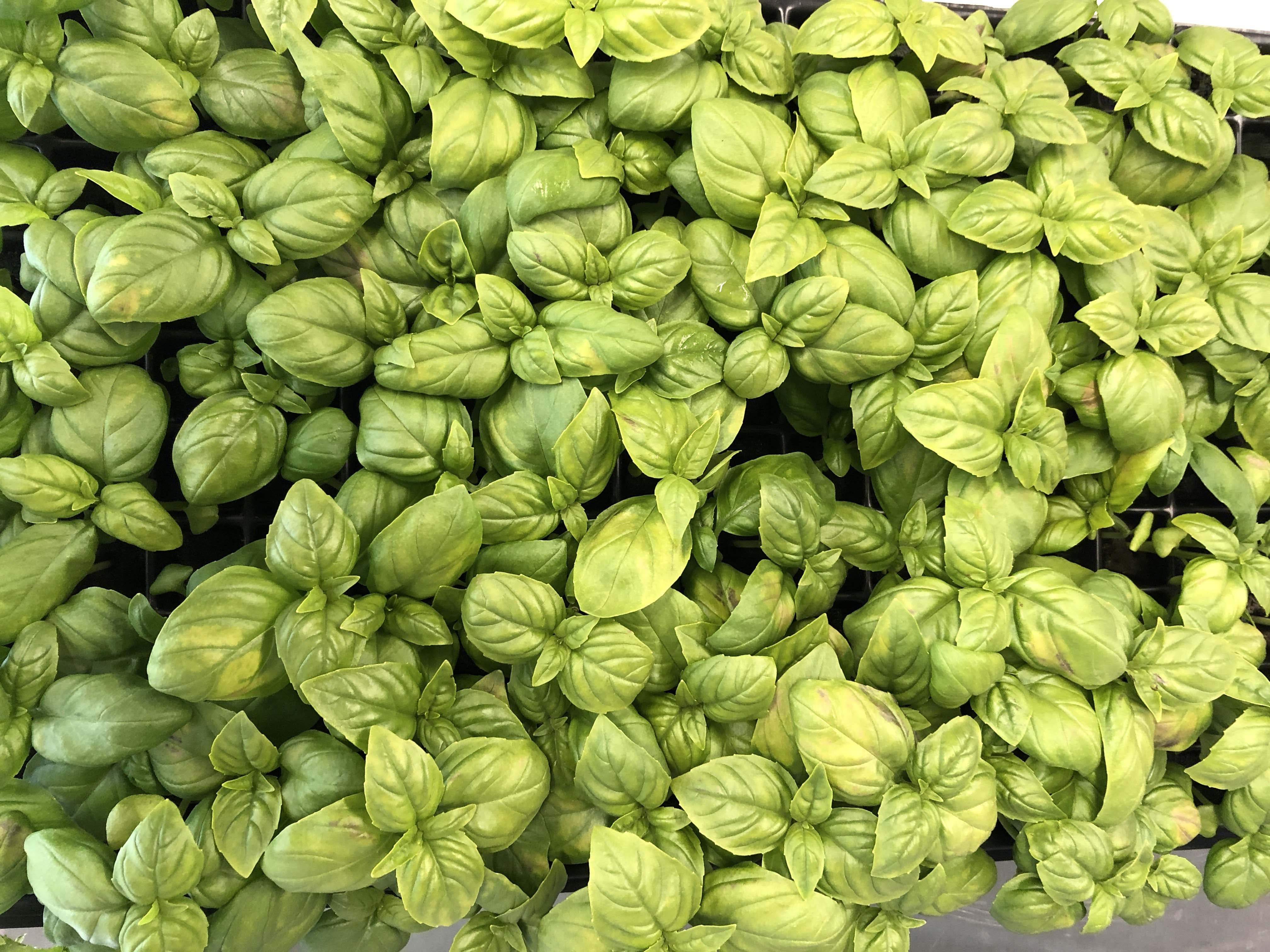FREQUENTLY ASKED QUESTIONS

FREQUENTLY ASKED QUESTIONS

Do you have a specific crop in mind? We would be happy to look into it further for you.
Primary Farm starts from $275,000 +GST and our Vestibule from $48,000 +GST for 3m or $62,000 + GST for 6m. For prices on all our other modules please reach out to the team.
Each 40’ Module (Primary) requires three-phase 50amp services (50amp per phase max demand). The primary module draws average 250 kw per day or approximately 10kwh
Better insulation than a shipping container by about 60%, coupled with a sealed, truly controlled environment, mean external climate influences are much less likely, if any influence at all. Brand new, purpose built components will last much longer, >10 years than a repurposed shipping container. Used shipping containers come in all sorts of conditions, from pretty good to downright horrible. With a Modular Farm you’ll never have to guess what condition your ‘new’ farm will arrive in.
A bigger container doesn’t necessarily mean more costly or complicated transportation costs. Modular Farms are designed to ship via truck, train or barge. In Australia there is no need for freight escort.
Combined with a properly controlled environment, our LEDs have helped us to realize a yield volume that is increased up to 80% over competing container farms on the market. Yes, 80%!
Modular Farms has a HEPA filtered air intake and exhaust system that is only used in emergency CO2 venting situations where preservation of human life is a factor. Otherwise, our farms not only recycle water in a closed-loop, recirculating system, they also recycle air. Modular Farms are equipped with dedicated, commercial grade air conditioning and dehumidification. They can also be outfitted with an optional 5-stage UV and charcoal scrubber air purifier. That might not sound so important but it’s actually one of the most prevalent issues in existing shipping container farms.
As an example, inside the farm, our dehumidifiers are capable of removing and recapturing over 190 litres of transpired or evaporated water from the air every day. That’s a lot of water! So why’s that a big deal? That water will wind up in the air regardless of a farm’s ability to recapture it, and if it isn’t handled properly, it can cause serious and catastrophic issues with high humidity which usually leads to stunted plant growth, mould and mildew problems and even plant death.
The increased insulation in a Modular Farm container, in addition to the closed-loop environment, means a more consistent air temperature and humidity regardless of conditions outside the farm. This in turn means a better environment for plants which produces not only greater yields but healthier looking and more nutritious plants as well.
Modular Farms are HACCP, under our food safety standards and regulations and were built to do one thing: grow food.
Our farms are designed to accommodate up to 4 farmers working at a time. We design and build everything from a farmer’s perspective, because we’re farmers too.
With over 4 years of experience, and headaches, of farming in shipping container farms, we know how uncomfortable it can be to work in confined spaces. It might not sound like a lot, but an extra 60cm of width in our farms makes a world of difference in avoiding worker fatigue.
And have you ever tried working elbow to elbow with an 2.44m tall ZipGrow Tower? Yeah, don’t. Our large island style work station is a great space to share when working with friends, family or co-workers.
Bright walls, easy access corners, smooth floors and work surfaces and a HACCP certified workspace means that keeping a Modular Farm clean and well maintained is a breeze. Did you know you can clean the entire floor of a Modular Farm to the highest degree of cleanliness in under 5 minutes? Well you can! That’s not happening with a corrugated floor in a shipping container and is actually one of the several reasons why shipping container don’t make food safe farms. Those corrugated floors are a great place to harbor dirt, mould and bacteria. This is not at all ideal for growing clean food in a small space, and certainly not an issue that can be swept under a rug.
Two separate walkable work aisles is another great attribute of the Modular Farm. Regular visual inspections of crops are absolutely crucial if a farm is to be successful. The process of crop inspections in a Modular Farm is so terribly simple it should be outlawed. With aisle widths of 1 meter it’s a snap to walk the farm and make sure everything is in order. You also don’t need to move towers or disturb often delicate plants to inspect crops.
This cannot be said of other container farms on the market.
ZipGrow Towers are known for their ease in processing and accessing food. Despite how fantastic it is to grow food in ZipGrow Towers, we found we could make life even easier for farmers. In Modular Farms, you don’t need to move a single tower to harvest your crops. That’s right, it’s as simple as walking up to a wall and cutting stems or pulling out a head of lettuce.
This process not only saves considerable time in harvesting food, it also eliminates substantial yield loss and plant damage normally associated to working in shipping container farms.
Here at Modular Farms, we want to continue to design and build vertical farms, by farmers for farmers, for the long haul. We sincerely believe you can only build a great vertical farm by being great vertical farmers first.
While we’re very confident in our knowledge and abilities, we’ll be the first to admit, although we try, we’ll never know everything. That’s why we continue to collaborate with the world’s best in vertical farming. If you ask us a question and we don’t know the answer, we won’t guess or make something up but we’ll certainly have a friend close by who will be able to help.
As such, any farms shipped internationally (currently) will be done so with North American or Australian wiring and electrical standards in place. Any orders placed, with a destination outside of North America or Australia, will be fulfilled with the knowledge and responsibility of the buyer that the farms will be received without consideration to their local, regional or national electrical certification standards.
Vestibule Module – 3.2m long X 3.2m wide x 2.7m height
Macro Module – 13m long X 3.2 wide X 3m height
To accommodate both connected modules, the combined ‘pad’ dimensions should measure 15m long x 9m wide. PAD dimensions will vary by site however we can work with you once you reach that point!
Vestibule Module – 2,500 kilograms
Macro Module – 9,000 kilogram
Substrate / pad materials can include gravel / trap rock, railroad ties (creosote free), sonotube or concrete slab. Asphalt may be sufficient (think parking lots) however, due to the weight, grass, soil and other soft surfaces are not suitable as the farm will sink into the ground. The farm must be placed on a level surface as the interior components are assembled on a grade to permit gravity return of water. Farm levelling instructions will be provided once a site is selected.
Three-phase, 50-amp service
130 amps usage at peak
Separate metering is recommended to track electrical usage. This is not required if a dedicated / direct hydro service is being provided. It is highly recommended, if not legally necessary that you hire a certified electrician to connect your Modular Farm. We will work with your local electrician to ensure everything ‘goes off’ without a hitch.
Receiving your Modular Farm modules is a piece of kale. The hired transport and equipment operators will do most of the work and literal heavy lifting. A Modular Farm Field Agent can be hired to be onsite to ensure everything goes smoothly the day your farm arrives. This service also includes overseeing tradespeople and setting everything up inside your farm to make sure you’re ready to get planting as soon as possible. There is a fee for this service.
Please contact our Sales & Support Team to learn more.
